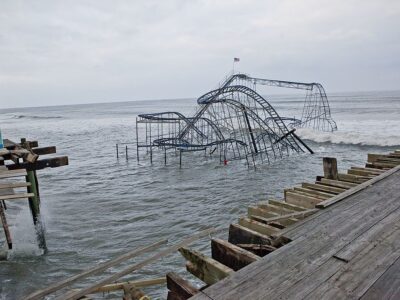
“It is often said that generals always prepare to fight the last war. We need to be sure that we do not just prepare for the last disaster, and put all of our limited resources in guarding against that one, without thinking about the other things that could happen.”
Those thoughtful words are from Michael Gerrard, director of the Columbia Center for Climate Change Law, an affiliate of the Earth Institute. He looks ahead from Hurricane Sandy in a new post on the center’s blog page.
He points out that Sandy was not the worst that could happen—the storm was a Category 1 hurricane before landfall; a Category 3 could have been far worse.
And, he notes, Sandy wasn’t really a 100-year storm. Was it a 20-year storm? Scientists think it’s likely we’ll see such events more frequently, because of climate change’s effects on sea temperatures, sea levels and climate and weather patterns. And we can’t do much to slow that down in the near future, even if we try to curb global warming, since the extra CO2 and other heat-trapping gases we’ve pumped into the atmosphere will be around for a long time, affecting the climate.

He also points out, “The prospect of future storms like Sandy is not something that current law is prepared to deal with. There is no comprehensive U.S. law about adaptation to climate change.”
So, what to do next?
“The prospect of future storms like Sandy is not something where our best future course of action is at all plain and obvious,” Gerrard says. “The magnitude of public investments that has been discussed is immense, and these projects must compete against a great many other compelling priorities. The land use decisions we face are heartbreaking—we seem to be left with a choice between rebuilding communities in places that will continue to be vulnerable to storms like Sandy, or not rebuilding them and requiring their residents and the rest of us to lose an immense amount of what we value. …
“Some really tough decisions lie ahead—and failure to make a decision is itself a decision, but often the worst one.”
Gerrard’s book, “The Law Of Adaptation To Climate Change,” which appeared in September, seems particularly relevant post-Sandy.
You can also read an article he wrote after Hurricane Katrina that is pertinent now, “Emergency Exemptions From Environmental Laws After Disasters.”



